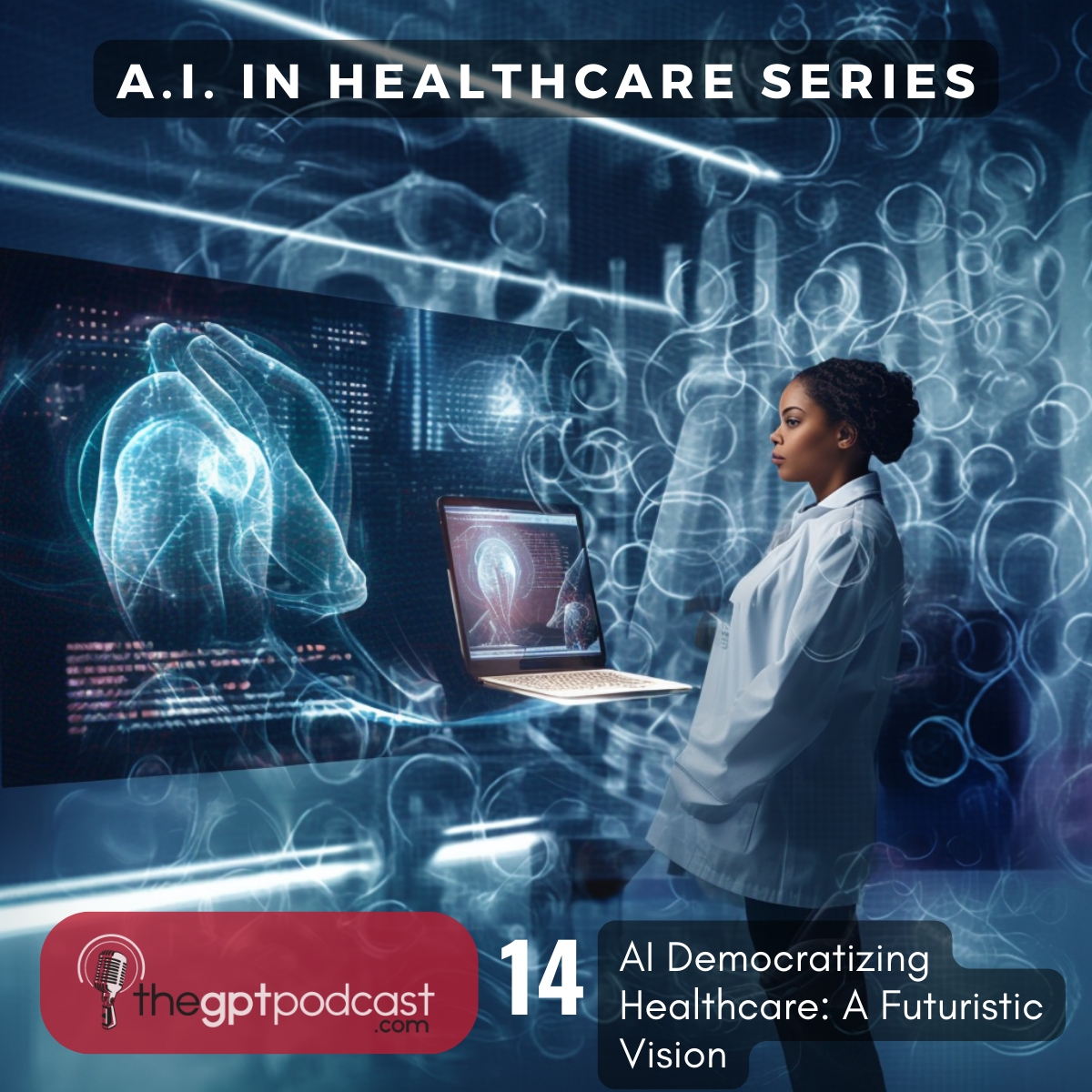AI Democratizing Healthcare: A Futuristic Vision
🎙️ We explore how AI could democratize healthcare 🏥 by addressing inequalities in access to quality care 🌍.Originating from Vijay Pande's 2018 Forbes op-ed, the idea is to harness AI 🧠 to emulate top doctors' expertise, making 'super-doctors' accessible to all✨.

Title: Democratizing Healthcare: The Role of AI in Enhancing Accessibility
Welcome to the AI in Healthcare Series where we delve deeper into the implications of artificial intelligence in healthcare provision. In this episode, we focus on an enlightening piece by Vijay Pande that illuminates the potential of AI in democratizing healthcare. Contrary to popular belief, the greater issue plaguing the U.S healthcare system isn't solely the quality of care, but accessibility.
As revealed by data from the Centers for Disease Control and Prevention, about 20% of adults in the U.S lack a regular source of healthcare. Furthermore, a glaring disparity appears when analyzing longevity rates. Between 2000 and 2014, America's wealthiest gained approximately five more years to their lifespan, while the poorest witnessed no change.
This widening gap can be ascribed to many factors. A prevalent contributor is the alarming scarcity of physicians, predominantly in areas that require their services the most. Healthcare providers are naturally inclined towards big hospitals in appealing locales and patients who can comfortably afford their services. Additionally, the skyrocketing prices of medical treatment exacerbate the problem.
This brings us to an instrumental solution – artificial intelligence. AI in healthcare endeavors to lower costs and broaden access. It does so by codifying and analyzing vast amounts of expert knowledge and experience. In other words, AI effectively amalgamates the collective wisdom of numerous experts for each patient, cutting the need for physical presence.
With thousands of patient-health scenarios acting as its database, an AI-based system minimizes chances of bias, errors, and unfamiliar symptoms in diagnoses. The result is a personalized and accurate analysis of a patient's health condition over time, known as longitudinal data. This comprehensive profiling enables doctors to detect irregularities in the patient's health pattern as opposed to sporadic comparisons with the general population.
Moving forward, envision a world where your morning routine doubles as a mini physical check. An AI-enabled mirror checking for dermatology issues, a toilet conducting a urinalysis, and a toothbrush collecting DNA from your saliva, your home becomes a constant source of health data. With this technological leap, we could potentially turn our homes into daily monitoring health centers.
However, advanced technology alone won't suffice. We must revolutionize our healthcare system to integrate these advancements. AI isn’t there to replace doctors, but to extend their expertise swiftly and economically to any corner of the globe. This symbiosis of technology and medicine holds the potential to distribute accessible, quality healthcare universally, regardless of geographic location or economic status.
As we conclude, we envisage a world where AI enables everyone to enjoy quality healthcare, effectively democratizing it.
Join us again soon for more insights on AI in Healthcare.

